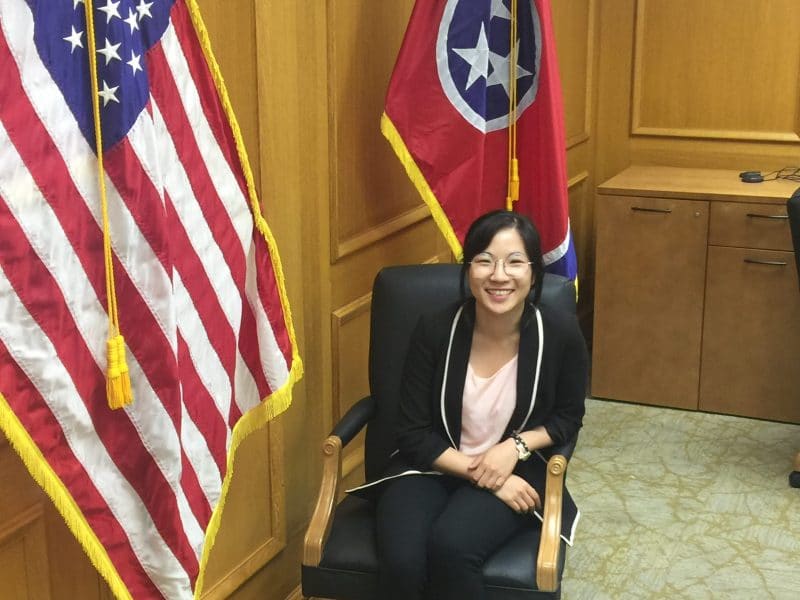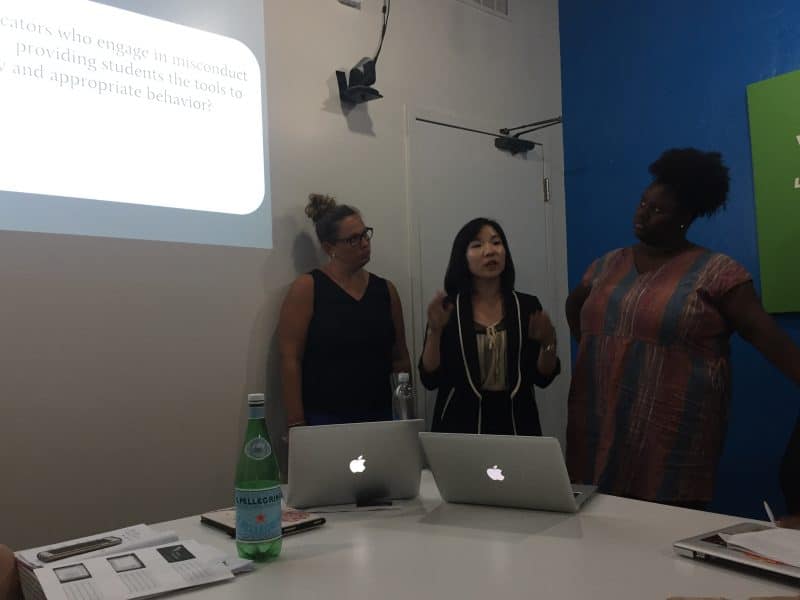
The Urban Leaders Fellowship (ULF) is a 7-week summer fellowship for early- to mid-career professionals who want to take an active role in changing their communities for the better. It focuses both on policies and practice, helping fellows grow as leaders in their communities and beyond. Fellows split their time between working with an elected official and partnering with community organizations all over the country. Thus, the program gives fellows a well-rounded understanding of both the formation of policy and its implementation. Fellows get to practice the most effective methods of leadership as they work to help communities through government and hands-on experience. A stipend of $2,500 is provided.
We talked to Rachel Smith, a recent Urban Leaders Fellow, to learn more about the fellowship and get some tips for preparing an application!
1. What inspired you to apply for the Urban Leaders Fellowship?
I entered undergrad with a major in political science, so policy had always somewhat been on my radar, even after I switched my major to international affairs. I first became interested in it after taking AP Political Science in high school. I think policy is the best way to affect the most change for the largest amount of people, although it can be frustrating and slow in practice. Policy is a good intersection of my skills and interests, and education policy is an intersection of this and my current direction.
I live in DC during the school year, so I was looking for a summer fellowship that would give me both experience working in policy and access to education networks while allowing me to stay in DC. I knew I wanted to focus on the intersection of policy and education to see if I could be interested in moving from the hands-on realms of nonprofits and schools into policy. My plan half worked—I did not end up being placed in DC, but, instead, I got to explore Nashville and learn about the amazing work being done in education policy here.
2. What have you enjoyed most about your fellowship so far?
My placement was with the Tennessee Education Research Association, where I wrote briefs summarizing findings from the 2018 Tennessee Educator Survey. The Survey is given to all teachers and administrators in Tennessee. I wrote briefs about teacher job satisfaction and teacher workforce trends in the state. Also, as part of the policy portion of the fellowship, I worked on a project doing research on Tennessee’s educator misconduct policies.
The connections that I have made through the ULF have been priceless. We have had regular access to some of the top people in Tennessee working toward equity in education, housing, and healthcare. I have also had the great honor of collaborating with other fellows, all of whom I have no doubt will bring positive, system-level changes to their communities in the future. That, and being able to see my work being directly presented to the State Board of Education, has made for a really great summer fellowship experience.
The appointed official we worked with, Wendy Tucker, was amazing. She is such a fighter, which affected the way I think about policymakers because so often we are told idealists can’t make it in policy–but, yet, there is Wendy! We also met a ton of great community members, like Rob “Veggies” Horton from the Trap Garden organization, Marshall Crawford of the revolutionary Housing Fund organization, and Molly Lasagna from the Tennessee Higher Education Association. The fellowship focuses on how people at different levels are all vital in social justice work, so it was great to meet people from across all those different levels.
I worked on policy around educator misconduct in Tennessee. Most of what we did was research existing policies in other states to find out what might be applicable to Tennessee and measures that would make practice match policy in areas where the State Board of Education (BoE) doesn’t have a lot of influence. Since Wendy is on the State BoE, she was able to present all of our findings to the board in some fashion or another and I even got a text recently from a teacher friend in Tennessee who mentioned that our research about Code of Ethics training had been used at her school! It was great to see something we worked on come to fruition like that.

3. What tips would you give others applying to the Urban Leaders Fellowship?
The main feature of the application is a policy proposal exercise. It is very short—only a few hundred words—so my advice is to be as concise as possible. You will also need to talk about your policy proposal in the interview, so make sure you can back up your argument on multiple levels. The ULF seeks candidates who are interested in the big picture and the long-term, and I think the best way to make your application stand out is to show that you are serious about systematic change for systematic issues that you tangibly observe in the community around you.
I actually did not do a lot of research for the application; I think the committee seeks genuine, thought-out responses more than it does a policy memo that could be presented to a legislative body. I prepared to defend my responses by thinking of alternate scenarios in which my answers might or might not change and how I would summarize my thoughts in that case.
Rachel Smith is a Korean adoptee who grew up in the rural town of Mayfield, Kentucky. Her undergraduate degree is in International Affairs from Transylvania University in Lexington, Kentucky. She is currently based out of Washington, D.C., where she is a graduate student in the International Training and Education Program at American University. She is an online ESL teacher and a graduate assistant with DC Reads, a social justice through youth literacy program that connects college student tutors and elementary and middle school students in Title I schools. Before moving to D.C., she was an English Teaching Assistant in South Korea with the Fulbright program. In her free time, she likes to exercise, learn new languages, and connect with people.
Interested in applying? Bookmark the Urban Leaders Fellowship to your ProFellow account.
© Victoria Johnson 2018, all rights reserved